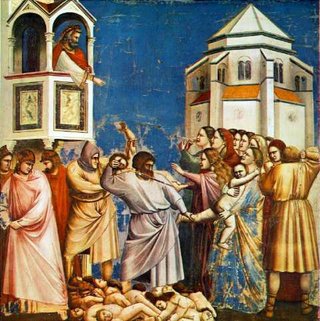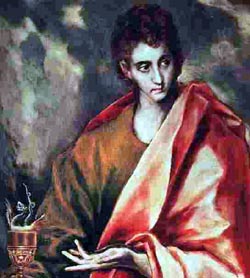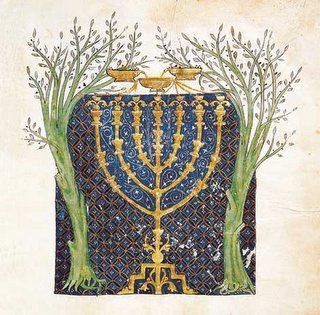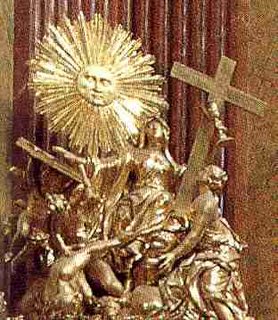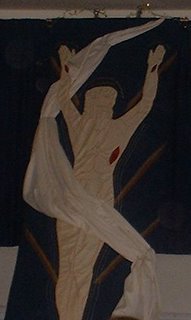
3rd Sunday of Advent
Jn 1:6-8, 19-28
Today is the Third Sunday of Advent. It is
Gaudete Sunday. The imperative verb,
Gaudete, means “Rejoice”. It comes from the Latin noun,
gaudium, which in English is “joy”.
Gaudare is “to rejoice”.
Gaudete is “Rejoice!”
It strikes me and I request you to note that
gaudete is neither a noun nor an adjective but a verb. Moreso, it is an imperative verb. Thus, it is a command. It does not describe an actual state of being or a present condition of things. It does not say that everything and everyone are jumping with joy.
Gaudete Sunday is not “Joyful Sunday”; it is, rather, the Sunday that commands us to be joyful.
But can we command joy? Can anyone of us simply jump with sincerely overflowing joy at anyone’s command? We can teach the heart, but can we order it to experience what emotion to feel? Can we really, possibly order the heart so that the heart automatically and sincerely follows what we command it?
The heart normally searches for at least one reason to feel what it feels. It is never sad for nothing. It is never happy for no reason. There is a reason for every tear and a cause for every smile. What is the reason for today’s command for us to rejoice?
Jesus – the reason for the season.
Life may be harder for us this year and there may be so much frustration, pain, and fear in our hearts, but through all the onslaughts of our daily living we can find joy in the gift of God to us: His Only Begotten Son, Jesus, who is Emmanuel, “God-With-Us”. He is the Joy that never fades. He is the Joy that does not depend on whatever happens around and inside us. He is the Joy of the world yet the Joy that the world cannot give nor take away. He is the Joy that raises us up no matter how down we are:
“When I am down and all my soul so weary,
when troubles come and my heart burdened be,
then I am still and wait here in the silence
until you come and sit awhile with me.
“You raised me up so I can stand on mountains.
You raised me up to walk on stormy seas.
I am strong when I am on your shoulders.
You raised me up to more than I can be.
“There is no life, no life without its hunger.
Each restless heart beats so imperfectly.
But when you come and I am filled with wonder,
sometimes I think I glimpse eternity” (You Raised Me Up by Josh Groban).
Gaudete! Rejoice! The Church tells us today, “Rejoice!” We command our hearts today, “Rejoice!” We tap our loved ones on their backs and say to them, “Rejoice!” We reach out to the downtrodden and raise them up, saying, “Rejoice!” The First Reading today (Is 61:1-2, 10-11) proclaims, “I exult for joy in the Lord, my soul rejoices in my God….” The Psalm today (Lk 1) sings, “My soul glorifies the Lord, my spirit rejoices in God my Savior.” The Second Reading today (1 Thes 5:16-24) commands us, “Be happy at all times; pray constantly; and for all things give thanks to God, because this is what God expects you to do in Christ Jesus.” But John the Baptist in the Gospel today tells us that though Jesus, our Joy, is already in our midst we fail to recognize Him.
Failure to recognize Jesus in our midst is the reason for sorrow. If we cannot rejoice with the Church, with the liturgy and the readings today, with the Advent season, and with those who are rejoicing, it will help us to know why by reflecting on the presence or absence of Jesus in our life. Have we forgotten the reason for the season? Have we exchanged Him for Sta. Clause instead? Do we recognize Jesus in our midst? If we do then we know that the joy of life, not only of Christmas, is truly in giving rather than in receiving, in loving rather than in being loved, in serving Jesus in one another rather than being served by others.
As we light the pink candle for the third Sunday of Advent, may the Light to which John the Baptist gave witness enlighten each of us and see it burning in our hearts and in the hearts of all. Like John the Baptist, may we speak for that Light by becoming joy in the lives of everyone.
Gaudete! Be happy the Lord is Emmanuel, “God-With-Us”. Rejoice! Be the happiness of others. Give them Jesus, only Jesus, always Jesus.



